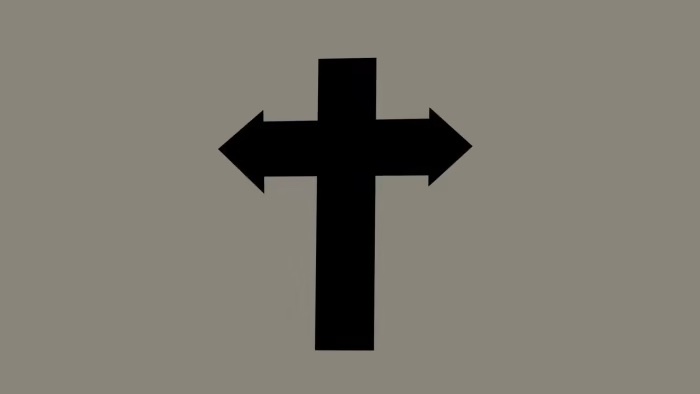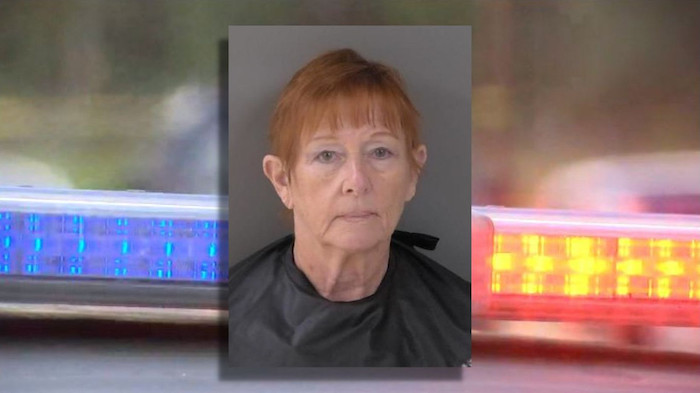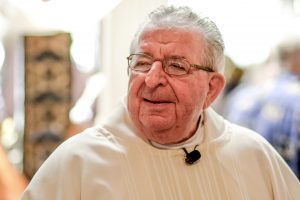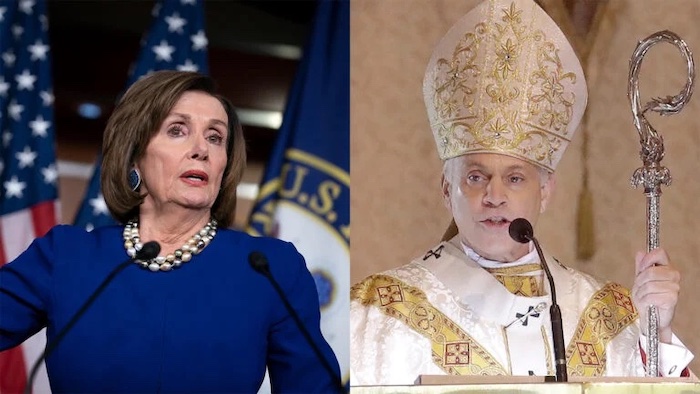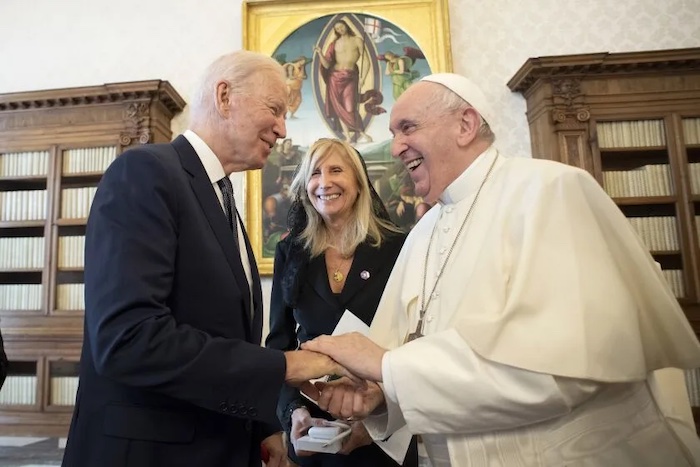
By Mary Jo McConahay
It’s time to take a clear look at the far-right politics of U.S. Catholic bishops. They won a 50-year campaign to turn back legal abortion, but they will not rest, it seems, until the country becomes a Christian nationalist state, with their moral principles codified into law. The religious right has long been identified with white evangelical Christians, but the U.S. Conference of Catholic Bishops, some 250 men, mostly white and past middle age, ranks among the nation’s most formidable reactionary forces. As a Catholic, I must protest.
There was a time when I was proud of the principled but often unpopular positions of my faith leaders. During the Cold War, they spoke out against nuclear proliferation. When neoconservatives rose to power in Washington, the bishops issued a powerful letter on the economy, reminding government of its responsibility for making a “preferential option for the poor.” They stood against Ronald Reagan’s support for autocrats in wartime Central America — I was covering the region as a reporter and met several bishops who traveled south to see for themselves before making the policy decision.
Since those days, the proportion of conservative U.S. prelates has increased with nominations by the two pontiffs who preceded Pope Francis, and the USCCB drifted far to the political right, narrowing its focus to the “preeminent threat” of abortion. Its members lead the country’s largest and hardly monolithic faith group — 73 million American Catholics — but it also attempts to sway the law with amicus curiae briefs on cases from gay rights to prayer in schools, and with a powerful lobbying arm, its Office of Government Relations, tasked with influencing Congress. The bishops are driving the U.S. church to the point of schism with opposition to Pope Francis, who emphasizes pastoral care more than doctrine, and who virtually slapped down their attempt to forbid Holy Communion to lifelong Catholic Joe Biden, who is pro-choice.
What shaped the conservatism of the America’s bishops?
The roots of today’s right-wing church hierarchy go back to the 1970s when Catholic activist (and Heritage Foundation co-founder) Paul Weyrich persuaded evangelical minister and broadcaster Jerry Falwell to join forces in a “moral majority” — Weyrich suggested the term. As a movement, ultraconservative Catholics and evangelicals would restore the values and morals of the founding fathers as Weyrich, Falwell and their followers saw them, a promise taken up by Reagan, their favored presidential candidate. Abortion became the Moral Majority’s flagship issue.
That highly politicized obsession has put U.S. Catholic bishops sharply at odds with the global church (and public opinion) in their animus to Pope Francis, who calls capital punishment, euthanasia and care for the poor equally important “pro-life” issues. For moderate Catholics like me, the deviation hits close to home, pushing the U.S. church too far from too much of Christ’s most elemental teachings while engaging in modern culture wars.
About sexual orientation, Francis, who recently celebrated 10 years as pope, famously said, “Who am I to judge?” but U.S. bishops rail against the “intrinsic disorder” of homosexuality. They ignore his urgent call for action on climate change and its existential threats. They drag their feet on his unprecedented process to prepare for a global Synod this year in Rome, which asks people, and in particular women, at every level of the church’s life — not just bishops — to contribute assessments and aspirations meant to define the mission of today’s church.
During the COVID pandemic some U.S. prelates tried to undermine the authority of both church and state. Francis encouraged vaccination, but San Francisco Archbishop Salvatore Cordileone distributed communion unmasked and unvaccinated and played the aggrieved victim (a Christian nationalist trope), claiming that “cultural elites” treated Catholics with “willful discrimination” by limiting public gatherings. Timothy Broglio, archbishop for the Military Services USA, contravened the pope by saying Catholic service members could request a religious exemption to the shot, despite Pentagon orders they get it. Broglio is the newly elected president of the USCCB.
The U.S. church has a history of discrimination against Black Catholics in parishes and seminaries, and now the bishops go wrong, with notable exceptions, by failing to adequately condemn white supremacy. After Black Lives Matter protests, Los Angeles Archbishop José Gomez — president of the U.S. bishops for three years until late 2022, and vice president of the group before that — called out social solidarity movements as “pseudo-religions” that are part of “a deliberate effort … to erase the Christian roots of society and to suppress any remaining Christian influences.”
Wealthy laity support the vision of far-right prelates. Southern California billionaire Timothy Busch, for example, is the founder of the Napa Institute and its influential summer conference where well-to-do conservative Catholics hobnob with bishops, archbishops and right wing politicians. Archbishops Gomez and Cordileone are advisors; last year Trump administration Atty. Gen. Bill Barr was a keynote speaker. Busch, who sees unregulated free markets as congruent with Catholic teachings, has little to say about Francis’ attack on the “sacrilized workings” of the global economy.
Perhaps of greatest concern, the USCCB has been increasingly willing to render the wall between church and state a mere gossamer curtain. Invoking novel theories of “religious liberty,” the bishops have fought legislation and court decisions most Americans support, notably laws protecting same sex marriage and access to contraceptives.
At age 86, Pope Francis is close to the end of his pontificate. Among American Catholics, a stunning 82% view him favorably. But he may not live to appoint enough like-minded cardinals to elect a similar successor.
Moderate U.S. prelates do not go along with the USCCB right-wing hardliners, but they are a minority. I can only hope their numbers grow in time, providing the church with the leadership devoid of political considerations that American Catholics deserve.
Complete Article ↪HERE↩!

